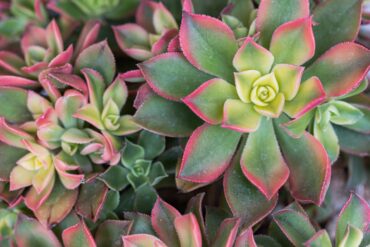Experts say that over half of all teenagers are sleep deprived.
A combination of natural hormone changes combined with greater use of screen-based technology means most teenagers aren’t getting nearly enough sleep.
This puts youngsters approaching adulthood at risk of all the negative side effects that we usually experience when we’re sleep-deprived.
A lack of sleep exposes you to everything from increased risk of chronic illness to mental health problems.
However, for teenagers, the side effects of sleep deprivation can be even worse. That’s because children are still moving through a crucial developmental stage in their lives.
Lack of sleep during these years can have an impact on everything from your child’s growth to their ability to process emotions.
Here’s your guide to the effects of sleep deprivation in teens.

How much sleep should a teen get?
To better understand sleep deprivation in teens, the first thing that we need to do is figure out how much sleep a teen needs.
According to the American Academy for Sleep Medicine, pre-teens and teenagers need anywhere between 8 and 12 hours of sleep. That leaves a lot of room for adjustment.
For most adolescents, about 9 hours of sleep per night is ideal.
Unfortunately, most teenagers aren’t getting anywhere close to that amount.
Teenagers are constantly dealing with the stress of studies and homework. They have high social demands. They experience physical and hormonal changes.
As teenagers go through high school, the amount of sleep they get seems to dwindle even further.
Simply asking how much sleep a teen should get might not be enough to overcome deprivation issues either.
According to research into the sleeping patterns of youngsters, teenagers that do manage to get the recommended nine hours won’t always get the full benefit.
That’s because many teens go to bed late and sleep late.
Unfortunately, the quality of our sleep is usually better earlier in the night. That means that if you’re sleeping late, you’re less likely to experience all the positive REM sleep and restorative slumber you need.
Even if your teenager sleeps until noon after going to bed at 3am, they may not feel rested when they wake up.

What causes sleep deprivation in teens?
Scientists have known for a long time now that a person’s biological clock shifts forward in adolescence.
Instead of feeling drowsy in the evening, teenagers actually tend to become more alert and have a difficult time settling in to sleep.
Doctors find this is likely because melatonin, which causes sleepiness, is secreted later in adolescence.
Sleep deprivation in teens is becoming an increasingly common problem.
Like adults, teenagers can end up having a bad night’s sleep for a number of reasons. For instance, they might feel stressed about an upcoming exam, or be worried about having nightmares.
Many experts believe that a few trends cause poor sleeping patterns among teenagers. The first thing that prompts sleep deprivation in teens, is a demonstration of poor sleeping habits from parents.
Teenagers, like younger kids, watch their parents for insights on how to behave.
If you’re not going to bed at a reasonably time each night, your teen won’t either.
Additionally, research tells us that teenagers usually veer towards later bedtimes because of the hormonal changes that are happening to them during puberty.
Night owl behaviour is more common among teens than in adults and children.
However, electronic equipment accentuates this desire to be awake late at night.
Exposure to blue light from smartphones and other screens messes up your circadian rhythm. It prevents your brain from releasing melatonin and increases amounts of cortisol in your system.
In other words, the more time you spend on tech, the less likely you are to fall asleep.
Since most teenagers are practically glued to screens these days, their risk of sleep deprivation is usually very high.
Other things that have an impact on sleep deprivation in teens include:
- Stress and anxiety: Often caused by social pressure and school.
- Caffeine: Kids often drink a lot of coffee and energy drinks to help them operate during the day.
- Homework and other demands: Some teens need to stay up late so that they have enough time to socialize and finish their homework.
With so many things designed to keep the average teenager awake these days, from social media to content streaming, it’s easy to see how sleep deprivation is such a problem.

The effects of sleep deprivation in teens
So, what are the effects of sleep deprivation in teens?
What happens to a youngster when they’re unable to get the right amount of beauty sleep?
For the most part, the side effects will be very similar to the ones that we see for adults.
A sleep-deprived teen might be grumpier than usual or have trouble concentrating. Their emotions will be out of sync, and they won’t be able to focus properly at school.

Some of the biggest issues caused by sleep deprivation in teens include:
1. Problems with depression and anxiety
Studies prove a clear link between teenage depression, anxiety, and sleep deprivation. Research into 28,000 high-school students showed that an hour of lost sleep was associated with a 38% increase in that child’s chances of feeling hopeless or sad.
Other studies have found that high school seniors are a lot more likely to have depressive symptoms if they have excessive feelings of sleepiness.
Most doctors recommend better sleep hygiene to teenagers as a first line of treatment for depression.
2. Leaning and behaviour issues
Around one in four teens go to bed after 11:30 pm on weeknights. The children that do go to bed late often perform worse at school and experience greater problems with emotional distress.
Young teens that don’t get enough sleep are more likely to be impulsive, oppositional, and inattentive when learning.
Behaviour and academics wise, teenagers that experience sleep deprivation can encounter a lot of problems — which carry on into later life.
If you don’t get enough sleep, you won’t be able to process the information that you collect each day at school. This makes it harder to perform well in tests and accomplish more significant things in life.
3. Risk of substance abuse
The relationship between sleep deprivation in teens and potential substance abuse is often a two-way street. Sleep deprivation increases the risk of drug use and dependence.
In turn, drug use fuels sleep problems.
One study found that for every ten minutes later that a teenager went to bed each night, there was a 6% increase in the chance that they had used marijuana or alcohol in the last month.
Additional research indicates that sleep difficulties often predict substance-related issues like drinking and driving, or binge-drinking.
4. Obesity and weight issues
In adults, one of the side effects of sleep deprivation can sometimes be a higher chance of weight problems. The same issue applies in teenagers.
Losing sleep has a long-term impact on a young person’s physical health, leading to higher risk of obesity and diabetes.
Among teens who are already suffering with obesity, not getting enough sleep could increase the risk of developing diabetes at a later stage.
Research has shown that teens with type 1 diabetes might have more trouble getting to sleep, and that sleeplessness, in turn, can cause greater difficulties in regulating blood sugar.
5. Dependence on medications
In some cases, sleep deprivation in teens can increase the risk that a youngster will become dependent on anxiety and sleep medications.
Prescription sleep aids are not recommended for children under the age of 18. Unfortunately many teens still have Ambien or melatonin prescribed for insomnia.
Sadly, the earlier a youngster starts relying on medical help to get to sleep each night, the more likely they are to become addicted or resistant to certain drugs.
This means it’s more likely that teenagers will eventually be unable to sleep without some form of medication.

Overcoming sleep deprivation in teens
The good news for teenagers that suffer from trouble sleeping, and parents who have exhausted children, is that it is possible to overcome sleep disorders.
Simple steps, like implementing a routine where you go to bed at the same time each day and wake up at the same time each day will help teenagers to regulate their sleep rhythms.
Unfortunately, that includes making sure that your teenager doesn’t sleep in on the weekend.
Teenagers should be encouraged to unplug from their electrical devices earlier in the day too. Preferably 1 hour before bedtime.
Reducing exposure to blue light and electronic devices will help teenagers to get the regular dose of melatonin that they need to fall asleep soundly each night.
At the same time, parents should encourage teenagers to avoid as much sugar and caffeine as possible after 2 pm each day.
Sugar and caffeine have a habit of keeping us up for much longer than we’d like — whether we’re teenagers or adults.
Taking a teen to a doctor to talk about their sleep concerns is often the best way to get the right form of treatment.
Some doctors will recommend simply getting your teenager to try more exercise.
Getting regular exercise can help with things like eliminating stress and making it easier to fall asleep at night.
Even low-impact exercise like yoga can stretch out the muscles and reduce feelings of anxiety.
Other doctors may suggest sleep studies that allow them to get to the bottom of what’s causing your teenager’s sleeping disorder. This may be an essential step for ruling out dangerous conditions like sleep apnea.
Don’t forget to check out our other articles here at Siestio for more insights into sleep deprivation, teen sleep tips, and more.
Siestio. Sleep Matters.
Medical disclaimer
You must not rely on the information provided on our website as an alternative to medical advice from your doctor or other healthcare professionals. For more information read our full disclaimer here.




